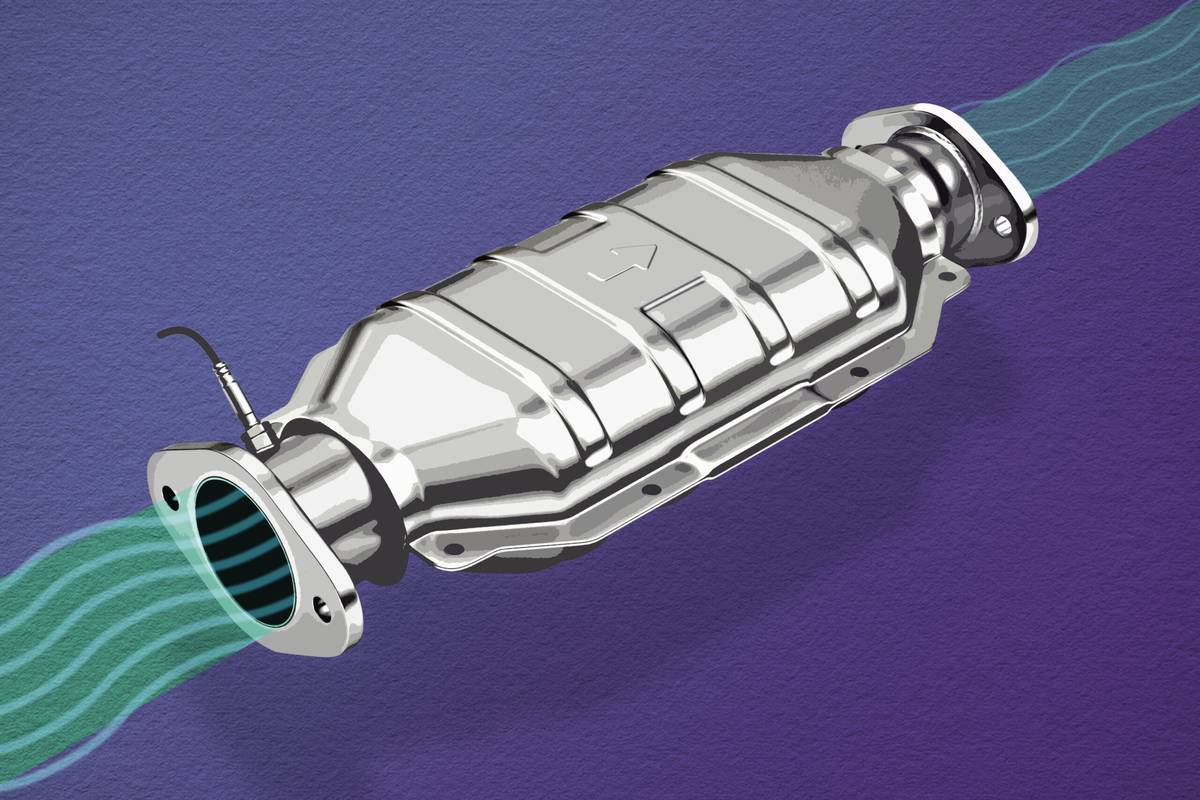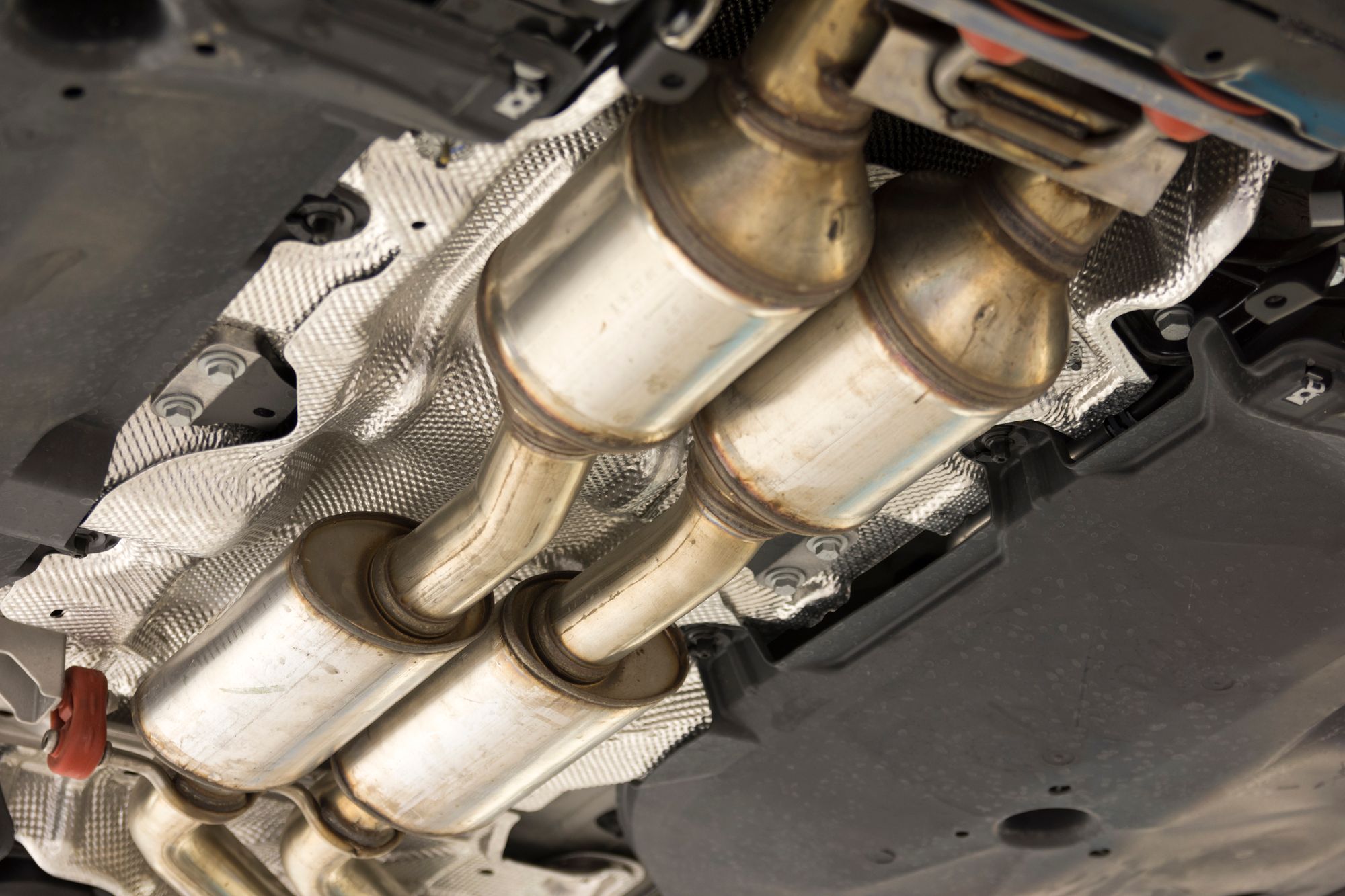Driving with a bad catalytic converter is not recommended as it can lead to decreased fuel efficiency and increased air pollution. Can You Drive With a Bad Catalytic Converter,The catalytic converter is an important component for reducing harmful emissions from the vehicle.
When it comes to your vehicle’s performance and environmental impact, the catalytic converter plays a crucial role. If the catalytic converter is malfunctioning, it can cause issues with the vehicle’s overall performance and contribute to increased pollution. It’s important to address any catalytic converter issues promptly to ensure your vehicle runs efficiently and meets emission standards.
Neglecting a bad catalytic converter can lead to further damage to the vehicle and may result in failing emissions tests. Additionally, driving with a bad catalytic converter can also lead to increased fuel consumption, costing you more in the long run. Therefore, it’s essential to have the catalytic converter inspected and repaired as soon as possible to ensure safe and eco-friendly driving.

What Is A Catalytic Converter?
A catalytic converter is an essential component of a vehicle’s exhaust system that plays a crucial role in reducing harmful emissions. This device converts toxic pollutants produced during the combustion process into less harmful substances before releasing them into the atmosphere. Understanding the function and importance of a catalytic converter is vital for maintaining a vehicle’s environmental compliance and overall performance.
How Does A Catalytic Converter Work?|
A catalytic converter operates by utilizing precious metals, such as platinum, palladium, and rhodium, as catalysts to initiate chemical reactions within the exhaust gases. When the exhaust gases pass through the catalytic converter, the catalysts facilitate the conversion of toxic gases like carbon monoxide and nitrogen oxides into carbon dioxide, nitrogen, and water vapor through oxidation and reduction reactions.
Importance Of A Catalytic Converter
The presence of a functioning catalytic converter is crucial for complying with emissions standards and regulations. It effectively reduces the environmental impact of vehicle emissions, contributing to cleaner air quality and minimizing air pollution. Moreover, a properly functioning catalytic converter also ensures optimal fuel efficiency and engine performance, making it an indispensable component for vehicle owners and the environment alike.
Signs Of A Bad Catalytic Converter
Signs of a Bad Catalytic Converter
Decreased Engine Performance
A bad catalytic converter can cause a noticeable decrease in engine performance, leading to hesitation, stalling, or a lack of power during acceleration.
Unusual Exhaust Smells
When a catalytic converter fails, it can produce unusual odors. This can include a rotten egg smell, indicating the presence of sulfur in the exhaust.
Failed Emissions Test
One of the most significant signs of a bad catalytic converter is when a vehicle fails an emissions test. A failing converter can cause the vehicle to emit excessive pollutants, leading to a failed inspection.
Driving With A Bad Catalytic Converter
Driving with a bad catalytic converter can lead to a host of issues that can negatively impact your vehicle’s performance and overall safety. It’s important to understand the risks involved and the effects it can have on your car before making the decision to continue driving with a faulty converter. In this section, we’ll explore the potential risks and how it can affect the performance of your vehicle.
Risks Of Driving With A Bad Catalytic Converter
A bad catalytic converter poses several risks and can have serious consequences for your vehicle. Here are some of the risks associated with driving with a faulty converter:
- Increased emissions: A bad catalytic converter fails to effectively reduce harmful emissions, leading to increased pollution and environmental damage.
- Failed emissions test: In many areas, vehicles must pass emissions tests to remain street legal. Driving with a bad converter can result in a failed test, leading to fines and potential legal issues.
- Reduced fuel efficiency: A faulty converter can disrupt the engine’s combustion process, causing your car to consume more fuel than necessary, reducing fuel efficiency, and costing you more money at the pump.
- Engine damage: Over time, a bad catalytic converter can cause damage to other engine components, such as the oxygen sensors and spark plugs. This can lead to more extensive and costly repairs.
- Loss of power: A blocked or malfunctioning converter can restrict the flow of exhaust gases, resulting in a loss of engine power and reduced performance.
Effects On Vehicle Performance
A bad catalytic converter can significantly impact your vehicle’s performance. Here are some of the effects it can have:
- Reduced acceleration: A faulty converter can restrict the flow of exhaust gases, leading to slower acceleration and decreased responsiveness.
- Engine misfires: Improperly processed exhaust gases can cause the engine to misfire, resulting in a rough idle and potential damage to the engine over time.
- Increased engine temperature: A clogged converter can lead to a rise in engine temperature, potentially causing overheating and engine damage.
- Strange noises: A failing catalytic converter can produce unusual noises, such as rattling or loud hissing sounds, which may indicate a serious issue.
Driving with a bad catalytic converter is not only bad for the environment but can also have detrimental effects on your vehicle’s performance. It’s crucial to address any issues with your converter promptly to avoid further damage and ensure your car runs smoothly and efficiently. Don’t underestimate the impact of a faulty converter – take action to have it repaired or replaced as soon as possible.

Legal Implications
Driving with a bad catalytic converter can lead to legal implications. A malfunctioning converter violates emission standards and may result in fines or penalties. It’s essential to address the issue promptly to avoid legal consequences and ensure compliance with regulations.
Driving with a bad catalytic converter can have legal implications. It’s important to understand the laws surrounding this issue before you hit the road. In this section, we will address the key questions and possible consequences related to driving with a faulty catalytic converter.
Is It Illegal To Drive With A Bad Catalytic Converter?
Yes, driving with a bad catalytic converter can be illegal in many jurisdictions. The exact legalities can vary depending on your location, so it is crucial to check the regulations specific to your area. Ignoring the laws regarding catalytic converters can lead to fines, penalties, and even vehicle impoundment. To ensure compliance, it’s recommended to consult local authorities or legal professionals for accurate information on your region’s legislation.
Possible Consequences
The consequences of driving with a faulty catalytic converter can be severe. Here are some potential outcomes you may face if caught driving with a bad catalytic converter:
- Financial Penalties: Non-compliance with catalytic converter regulations can result in hefty fines that can significantly impact your budget.
- Environmental Impact: A malfunctioning catalytic converter can lead to increased emissions of harmful pollutants such as carbon monoxide, nitrogen oxide, and hydrocarbons. Contributing to high pollution levels can harm the environment and potentially endanger public health.
- Vehicle Performance Issues: A damaged catalytic converter can negatively affect your vehicle’s overall performance. Reduced fuel efficiency, engine misfires, and issues with acceleration and power may arise, compromising your driving experience.
- Increased Risk of Engine Damage: A malfunctioning catalytic converter can impact engine performance over time. Without proper conversion of harmful gases, the excess pressure can cause damage to other engine components, resulting in costly repairs.
- Legal Troubles: As mentioned earlier, driving with a bad catalytic converter can lead to legal consequences, including fines, impoundment of your vehicle, or even the loss of driving privileges. In addition, repeat offenses may result in more severe repercussions.
Stay informed about the legalities surrounding catalytic converters in your area to avoid unwanted repercussions. It’s essential to address any issues promptly and seek professional assistance to ensure compliance with regulations while maintaining the safety and performance of your vehicle.
Alternatives To Driving With A Bad Catalytic Converter
If you suspect that your catalytic converter is malfunctioning or not functioning at all, it’s important to address the issue as soon as possible. Driving with a bad catalytic converter can have several negative consequences, including being a safety hazard and potentially damaging other components of your vehicle’s exhaust system.
Fortunately, there are alternatives to driving with a bad catalytic converter that you can consider. In this article, we will explore the three main alternatives that you can choose from: repairing the catalytic converter, replacing the catalytic converter, and installing an aftermarket catalytic converter.
Repairing The Catalytic Converter
Repairing a catalytic converter can be an option if the issue is minor or specific to certain components of the converter. Some common issues that can be repaired include clogs or damage to the internal honeycomb structure. However, it’s important to note that not all catalytic converters can be repaired, and the success of the repair will depend on the specific issue and the extent of the damage.
Replacing The Catalytic Converter
If the catalytic converter is severely damaged or beyond repair, replacing it is often the best course of action. When replacing the catalytic converter, it’s crucial to ensure that you choose a high-quality replacement that meets the specifications of your vehicle. This will help ensure optimal performance and compliance with emission regulations. Additionally, professional installation is recommended to ensure proper fit and functionality.
Aftermarket Catalytic Converters
Another alternative to consider is installing an aftermarket catalytic converter. Aftermarket catalytic converters are manufactured by third-party companies and offer a more affordable option compared to OEM (Original Equipment Manufacturer) converters. However, it’s important to research and choose a reputable aftermarket brand to ensure that the converter meets emission standards and is compatible with your vehicle.
Overall, driving with a bad catalytic converter is not recommended as it can have negative consequences for both your vehicle and the environment. Instead, consider one of the alternatives mentioned above to address the issue and restore your vehicle’s performance and efficiency.

Tips For Dealing With A Bad Catalytic Converter
A bad catalytic converter can cause several issues with your vehicle’s performance and emissions. While it’s generally not recommended to drive with a faulty catalytic converter, there are some tips that can help you minimize damage and improve your driving experience. In this article, we will discuss three important tips for dealing with a bad catalytic converter: regular vehicle maintenance, proper driving habits, and consulting with a mechanic.
Regular Vehicle Maintenance
Regular vehicle maintenance plays a crucial role in preventing and addressing issues related to a bad catalytic converter. Here are some maintenance tips you should incorporate into your routine:
- Keep up with your vehicle’s scheduled service intervals to ensure all components, including the catalytic converter, are in good working condition.
- Regularly check and replace your vehicle’s air filter to ensure proper air flow, which can help prevent damage to the catalytic converter.
- Inspect the exhaust system for any leaks or damage that could affect the performance of the catalytic converter.
Proper Driving Habits
Your driving habits can significantly impact the lifespan of your catalytic converter. Here are some tips to follow:
- Avoid aggressive driving, such as rapid acceleration and sudden braking, as it puts unnecessary strain on the catalytic converter.
- Try to maintain a consistent speed while driving, as frequent fluctuations can increase the stress on the catalytic converter.
- Limit the amount of idling time, as prolonged idling can lead to the build-up of harmful substances in the catalytic converter.
Consulting With A Mechanic
If you suspect that your catalytic converter is malfunctioning or experiencing issues, it’s crucial to consult with a qualified mechanic. They will be able to diagnose the problem accurately and recommend the necessary repairs or replacements. Remember:
Only a certified mechanic should handle any repairs or replacements related to your catalytic converter to ensure proper installation and adherence to state emissions regulations.
By following these tips for dealing with a bad catalytic converter, you can minimize potential damage to your vehicle and ensure optimal performance. Regular maintenance, proper driving habits, and consulting with a mechanic are key to addressing and resolving catalytic converter issues effectively.
Frequently Asked Questions For Can You Drive With A Bad Catalytic Converter
Can A Bad Catalytic Converter Cause Your Car To Lose Power?
Yes, a bad catalytic converter can cause your car to lose power. A clogged or malfunctioning converter restricts the flow of exhaust gases, leading to decreased engine performance and reduced acceleration. If you notice a significant loss in power, it’s important to have your catalytic converter inspected and replaced if necessary.
Will Driving With A Bad Catalytic Converter Damage Your Engine?
Driving with a bad catalytic converter can potentially damage your engine. A faulty converter can cause excessive back pressure in the exhaust system, leading to overheating of the engine components and potential engine damage. It’s crucial to address the issue promptly to prevent further harm to your car’s engine.
Can You Pass Emissions With A Bad Catalytic Converter?
No, you won’t pass emissions with a bad catalytic converter. The converter plays a vital role in reducing harmful emissions from your vehicle. If it’s malfunctioning or clogged, your car is likely to emit higher levels of pollutants, making it impossible to pass emission tests.
It’s important to repair or replace the faulty converter to meet emissions standards.
How Much Does It Cost To Replace A Catalytic Converter?
The cost of replacing a catalytic converter can vary depending on factors like the make and model of your vehicle and the type of converter needed. On average, the cost can range from $500 to $1,500, including parts and labor.
It’s recommended to consult a trusted mechanic or exhaust specialist for an accurate estimate.
Conclusion
Ultimately, driving with a bad catalytic converter can have serious consequences for both your vehicle and the environment. If you continue to drive with a faulty converter, you risk damaging other components of your car and potentially failing emissions tests.
It is always best to address any issues with your catalytic converter promptly to ensure the longevity and efficiency of your vehicle.


